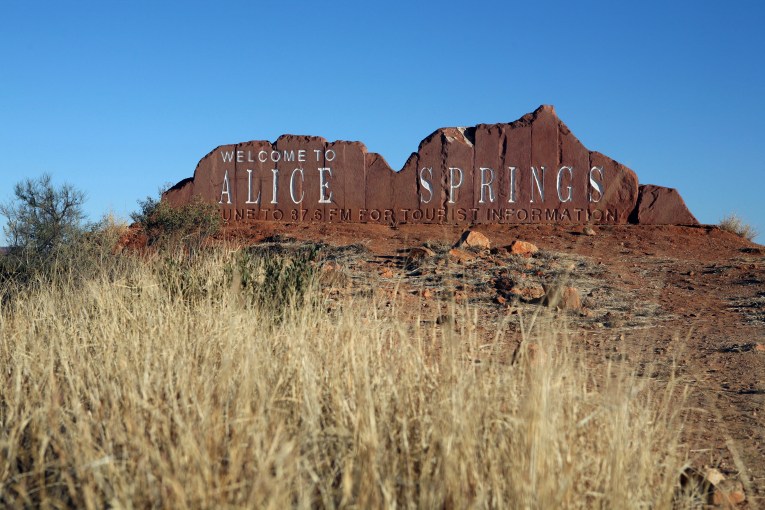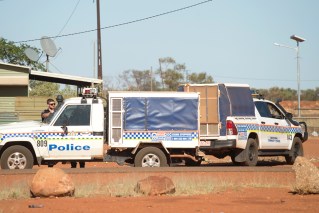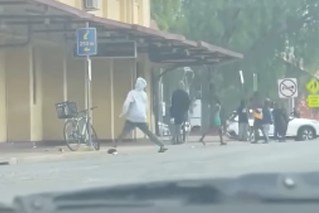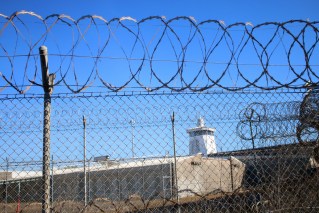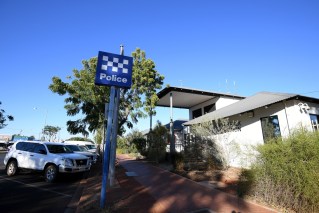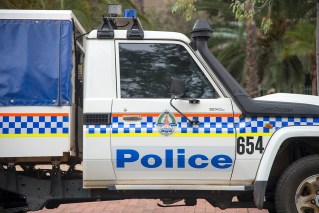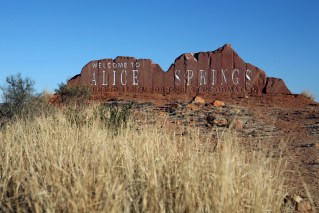Vote flagged on tough NT booze ban

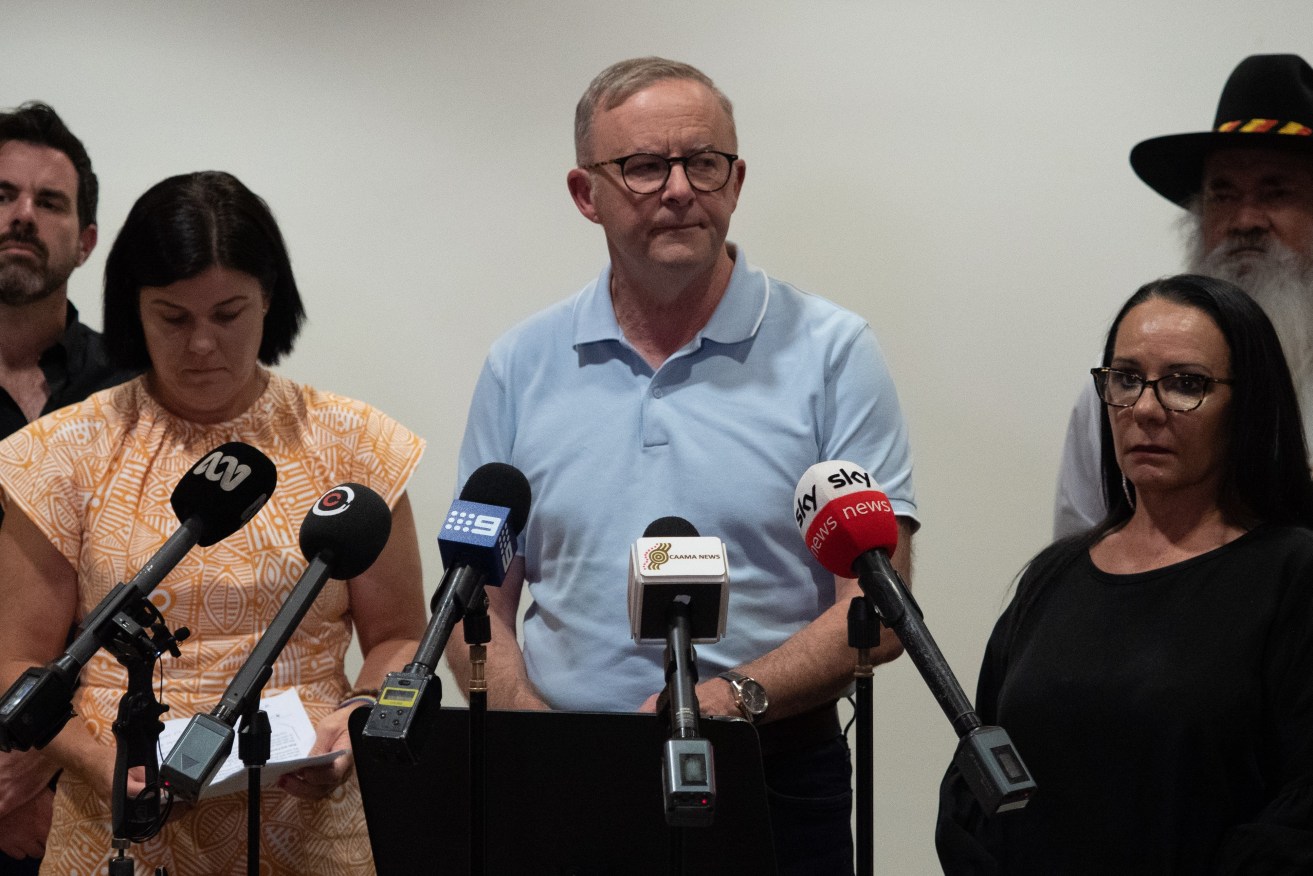
Prime Minister Anthony Albanese visited Alice Springs to discuss ways to curb anti-social behaviour. Photo: AAP
Communities in central Australia could get a formal vote on establishing alcohol bans as federal and territory governments work to combat the Alice Springs crime crisis.
Northern Territory Chief Minister Natasha Fyles suggested the Electoral Commission could hold the vote on whether communities wanted to opt-in or out of widespread alcohol bans.
Her comments followed Tuesday’s meeting with Prime Minister Anthony Albanese, Indigenous Australians Minister Linda Burney and community leaders to discuss ways to curb anti-social behaviour.
Ms Fyles said community consultation needed to be a key part of alcohol management plans, particularly in discussions about alcohol bans.
“We can’t look at Alice Springs in isolation, we need to look at the broader community and this is something where communities have had the option to opt-in to being a dry community,” she told ABC Radio on Wednesday.
“Do we go out to a ballot? Do we get the Electoral Commission to go out to these communities?
“Then the matter can be settled confidently knowing that all views have been heard.”
Mr Albanese and Ms Fyles announced a three-month ban on the sale of takeaway alcohol in the region on Mondays and Tuesdays and reduced trading hours on other days as well as a limit of one purchase per person daily.
Ms Burney said those rules were just the beginning of measures to combat surging youth crime in Alice Springs, and that the crisis meeting with territory leaders had made important progress in strategies to curb anti-social behaviour.
But she said the government would consider all options and further alcohol restrictions were likely to be on the table.
“I find it very difficult to see a future where there are not further restrictions on alcohol,” she told ABC TV on Wednesday.
Ms Burney also believed a successful referendum to establish an Indigenous voice to parliament would help communities, particularly in the Northern Territory, in the long-term.
“If the Voice to parliament had been established previously, I don’t think we would be where we are … because we would have been getting practical advice from people representative of the community in relation to these social issues,” she told ABC radio in a separate interview.
“It is wrong to think that the issue out here is just alcohol. There has been neglect for 10 years of small communities surrounding Alice Springs.
“This is not something we walked into yesterday, this has been something we’ve been working with and dealing with for a very long time.”
Ms Burney said the alcohol rules were designed as an “immediate response” to spiralling crime in Alice Springs.
“Yesterday was the beginning of some very direct action and it will not be the end. We will stay with this right through,” she said on Wednesday.
“What’s really important is Dorrelle Anderson has been appointed as a Central Australian control person that will work between the NT government and the federal government and will provide a report in one week as to where we go.”
Ms Anderson has been appointed to ensure all levels of government are working together to deliver services to the community. She will also review opt-in alcohol restrictions that replaced expired Intervention-inspired liquor bans last year and consider if opt-out bans should be implemented.
A long-term central Australian alcohol management plan will also be developed to deal with the region’s “complex issues”, which include alcohol-fuelled violence, unemployment and youth on the streets.
Alice Springs mayor Matt Paterson said Alice Springs had two major issues – alcohol, and antisocial behaviour.
“We did ask for a circuit-breaker and hopefully this is it. Do I think that this is is everything that is required? No, I don’t,” he told the ABC on Wednesday.
“We go back to [strict rules on alcohol under] Stronger Futures – we knew that worked. The government were begged not to let that lapse and unfortunately it has lapsed.”
Senator Pat Dodson, who joined Mr Albanese on Tuesday’s visit to Alice Springs, said the interim measures should help police, health workers and others dealing with the surge in violence.
“Three days of respite from the onslaught of alcohol – you’ve got to get people sober before you can deal with them, and you’ve got to be able to sit down and talk through these things,” he said.
“The jails and the detention centres are at breaking point at the moment. So you just can’t keep arresting people and putting them away.
“In the short-term, safety and security for the residents has to be maintained and, I must say, the police that are working here are doing their very best in relation to those matters.”
Deputy Opposition leader Sussan Ley said the government had ignored community leaders and she called for tougher restrictions.
“Governments have to respond to the situations they face and this government has not responded sufficiently or strongly enough,” she said in Canberra.
Northern Territory Labor senator Malarndirri McCarthy said she had “cautious optimism” about the impact of the measures.
“Over the next three to six months, it is absolutely critical that the people of Alice Springs see the change and feel the change and believe in the change,” she told Nine’s Today program.
Mr Albanese promised to spend millions of extra dollars to bolster security, including providing better street lighting, emergency accommodation for domestic violence victims and community services in Alice Springs and the region.
– with AAP
